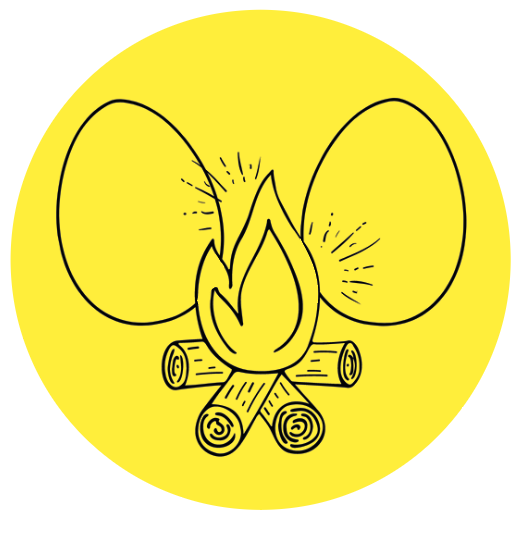Article by TWGE Redaktion
Applying Indigenous Wisdom in Business: Examples, Quotes, and Impact on Employer Branding
Indigenous tribes worldwide hold a treasure trove of cultural wisdom spanning centuries. This wisdom encompasses values like sustainability, community collaboration, and reverence for the environment. In recent times, businesses have begun harnessing this profound wisdom to align with their brand values and enhance their employer branding efforts. Here are illustrative examples, relevant quotes, and insights into how incorporating indigenous wisdom can have a positive impact on employer branding and brand vision.


“At Patagonia, making a profit is not the goal because the Zen master would say profits happen ‘when you do everything else right.'” – Yvon Chouinard, Founder of Patagonia
*This quote emphasizes that Patagonia’s core values go beyond profit-making. Yvon Chouinard’s vision was to prioritize doing the right things, including environmental and ethical considerations, and letting profits follow as a result of those principled actions*
1. Sustainable Business:
“In our culture, the elders teach us that everything we do impacts the seven generations after us.” – Traditional wisdom of the Iroquois
Brand Value: Sustainability
Companies like Patagonia have embraced this philosophy to prioritize sustainable business practices, earning recognition as environmentally responsible brands. This commitment bolsters their employer branding by attracting talent who share these values and appealing to consumers seeking eco-conscious products.

[/borlabs-cookie]
2. Community Thinking:
“The strength of the wolf is the pack, and the strength of the pack is the wolf.” – Sioux proverb
Brand Value: Community
Promoting community thinking, as exemplified by Toyota, fosters a collaborative work environment and innovation. This approach enhances employer branding by highlighting a company’s commitment to teamwork, making it an attractive workplace for individuals who thrive in such settings.

3. Respect for Nature:
“The Earth was not created by us, but we were created by the Earth.” – Cheyenne proverb
Brand Value: Environmental Protection
Companies like Interface, deeply rooted in environmental protection, project a responsible image. Their employer branding strategy benefits from attracting employees who value environmental stewardship and are drawn to companies that prioritize eco-friendly practices.

4. Cultural Connection:
“Culture is the root of every business.” – Irene Young, Chickasaw Nation Enterprises
Brand Value: Cultural Connection
Businesses like Chickasaw Nation Enterprises emphasize cultural integration to preserve their identity and values. This cultural connection strengthens employer branding by showcasing a company’s commitment to inclusivity and diversity, creating a more appealing workplace for diverse talent.
“We have a great deal to learn from indigenous peoples and their sustainable relationship with the environment. Their knowledge can inspire us to create a more sustainable future for all.” – Google
5. Wisdom of the Elders:
“The elders are the librarians of the human soul.” – Sue Atkinson, advocate for indigenous people’s rights
Brand Value: Knowledge Sharing
Companies, including Google, recognize the value of wisdom shared by their older employees. This approach strengthens their employer branding by portraying the company as an advocate for lifelong learning and personal development.

By integrating indigenous wisdom into their practices and incorporating these principles into their brand values, companies not only act ethically but also enhance their employer branding. Such alignment attracts like-minded employees who resonate with these values, contributing to a robust brand vision that values sustainability, community, environmental protection, cultural connection, and knowledge sharing. This, in turn, positions the company as an employer of choice, fostering a workplace culture that appeals to diverse talent and aligns with a broader vision of a better, more inclusive world.
“All things are connected. Whatever befalls the Earth befalls the sons and daughters of the Earth.” – Chief Seattle, Duwamish and Suquamish Chief
*This quote by Chief Seattle emphasizes the interconnectedness of all life and the responsibility of humanity to protect and care for the Earth, known as the “Anima Mundi” or the living world. It underscores the idea that the well-being of the Earth is inseparable from the well-being of all living beings, including humans`
Patriarchal structures within organizations can inadvertently contribute to the development of toxic corporate cultures. Here’s how:
- Power Imbalance: Patriarchy often places a disproportionate amount of power in the hands of a few, leading to power imbalances within the organization. This concentration of power can foster a culture of fear and subservience among employees.
- Lack of Diversity: Patriarchal systems may resist diversity, favoring homogeneity in leadership and decision-making. This exclusion of diverse perspectives can stifle innovation and create an unhealthy monoculture.
- Gender Bias: Gender bias is prevalent in patriarchal cultures, which can result in the marginalization of women and reinforce stereotypes. This bias can undermine women’s contributions and hinder their career growth.
- Hierarchical Rigidity: Patriarchal structures often emphasize rigid hierarchies, making it difficult for fresh ideas or constructive criticism to flow from lower ranks to upper management. This lack of open communication can lead to a stifling atmosphere.
- Resistance to Change: Patriarchal cultures may resist change and cling to traditional, outdated practices. This resistance can hinder adaptability and prevent the organization from evolving to meet new challenges.
- Toxic Masculinity: Patriarchal cultures may encourage toxic masculinity traits, such as aggressiveness, competitiveness, and emotional suppression. This can create a hostile work environment that is detrimental to employee well-being.
- Lack of Work-Life Balance: The focus on hierarchical authority in patriarchal cultures may prioritize work over personal life. This imbalance can lead to burnout and negatively impact employee mental health.
- Reinforcement of Stereotypes: Patriarchy often reinforces harmful stereotypes about gender roles and capabilities, limiting opportunities for both men and women and perpetuating discrimination.
- Resistance to Inclusivity: Patriarchal systems may resist efforts to promote inclusivity and equality. This resistance can impede initiatives aimed at creating a more diverse and inclusive workplace.
To combat toxic corporate cultures fostered by patriarchal structures, organizations must actively promote diversity, equity, and inclusion, encourage open communication, and challenge traditional power dynamics. Embracing a more inclusive and egalitarian approach can lead to healthier, more innovative, and thriving workplaces.

Cultivate a workplace culture that embraces wisdom from indigenous cultures. Explore our workshops at TheWildGoldenEgg, designed to transform brand values and foster a more inclusive and sustainable corporate ethos. Let’s bring the power of indigenous wisdom into your organization.













